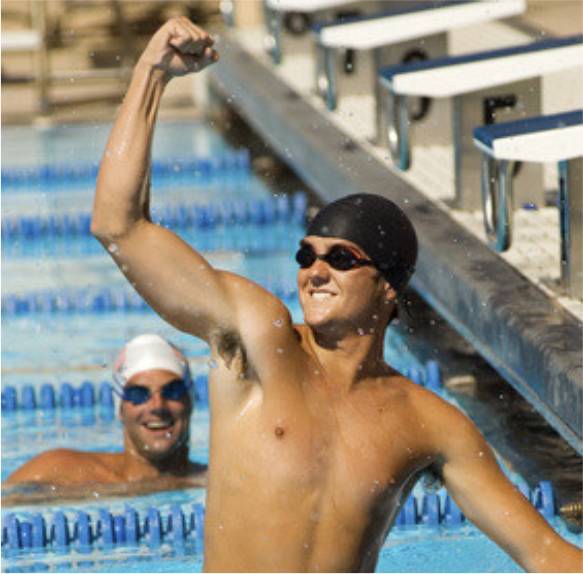Why it’s crucial to develop a GROWTH MINDSET

One of the biggest mistakes I see athletes make when it comes to MINDSET is that they haven’t been taught to develop a ‘GROWTH MINDSET. ’
In the world of sports, talent and hard work are often viewed as the primary drivers of success. However, the true game-changer—the one that can make or break an athlete’s performance and a team’s cohesion—is mindset. And not just any mindset: a Grow th Mindset.
Athletes and their coaches w ho adopt a Growth Mindset don’t just aim for success; they strive for continuous improvement, resilience, and mastery , regardless of the outcome. In contrast, a Success Mindset or Fixed Mindset can limit potential , stagnate development, and increase the pressure to “ win at all costs. ”
So why is developing a Growth Mindset so critical , and ho w can it transform performance both on and off the court / field/ track etc. . .?

1 . UNDERSTANDING THE DIFFERENCE
Let’s break it down:
Fixed Mindset: Believing that abilities and talents are static. Athletes with a Fixed Mindset see failure as a reflection of their capabilities and avoid challenges that may expose their weaknesses. Coaches with a Fixed Mindset may also fall into the trap of labeling athletes, assuming some are “naturally talented” while others “ just don’t have it. ”
Success Mindset: While this mindset is focused on achieving victory , it often ties self- worth and value to outcomes rather than effort or growth. Winning becomes the only goal , and any thing less is seen as failure. This can lead to immense pressure and hinder long-term development.
Worse still, when athletes with a Success Mindset don’t win, their Inner Critic has a field day . Confidence plummets and their ability to bounce back is dramatically impacted. Their self- worth is so tied to the outcome that they struggle to recover from the setback , making it difficult to get back in the game both mentally and emotionally.

Growth Mindset: Coined by psychologist Carol Dweck, a Growth Mindset is the belief that abilities can be developed through hard work , learning, and perseverance. Failure is viewed as an opportunity to grow, and challenges are embraced as stepping stones to improvement.
2 . WHY GROWTH MINDSET TRANSFORMS ATHLETES
Athletes who embrace a Growth Mindset don’t define themselves by a single game or competition. Instead, they see each practice, each setback, and each victory as part of their long-term development.
Here’s how it benefits athletes:
Resilience in the Face of Setbacks: Athletes with a Growth Mindset view failure as feedback, not a defining feature. When they fall short of their goals, they reflect, adjust, and return stronger. They see mistakes as learning opportunities instead of reasons to quit.
Consistent Improvement: Instead of being satisfied with “good enough, ” they always ask , “What can I do better?” This leads to continuous skill development, which compounds over time and separates great athletes from good ones.
Increased Confidence: Knowing that their abilities can growwith effort, athletes gain confidence that they can rise to any challenge. They shift from focusing on external validation ( winning or losing) to internal motivation (improving and learning).

3. COACHES PLAY A VITAL ROLE
A coach’s mindset often sets the tone for the entire team. Coaches with a Growth Mindset create environments where effort, learning, and improvement are celebrated. They recogni ze that each athlete has unique potential that can be unlocked w ith the right guidance and encouragement.
Here’s how coaches with a Growth Mindset excel:
Tailored Communication: Coaches with a Growth Mindset understand that each player learns differently. They are more likely to adapt their
communication and teaching styles to meet the needs of the individual athlete, making learning more effective (a key aspect of my FREE Mental Performance Mastery Challenge).
Encouraging Process over Results: Instead of only praising outcomes, Growth Mindset coaches highlight effort, improvement, and strategy. This shifts the focus from the fear of failure to a hunger for progress.
Building Resilient Teams: By modeling a Growth Mindset, coaches teach athletes to bounce back from losses, try new strategies, and embrace challenges. Teams led by these coaches are often more cohesive, adaptable, and resilient under pressure.

4. MOVING BEYOND THE "SUCCESS" TRAP
The pressure to win can sometimes drive athletes and coaches into a narrow, success-only mindset. But this can be incredibly damaging, as it ties an athlete’s value to their outcomes rather than their effort, character, and growth.
When winning becomes the only measure of success:
Fear of Failure Increases: Athletes avoid risks and challenges because failure seems catastrophic. They’re less likely to push themselves outside of their comfort zones.
Mental Health Suffers: The constant pressure to succeed at all costs can lead to anxiety, burnout, and a lack of joy in the sport. Long-term Development is Hindered: A Success Mindset often results in short term thinking, focusing on immediate wins rather than the sustained effort that leads to long-term mastery.

5. FOST RING A GROWTH MINDSET CULTURE
To create an environment where athletes thrive, it’s crucial to foster a Growth Mindset culture— one where coaches, players, and even parents focus on progress, resilience, and learning.
Here’s how to start:
Praise Effort, Not Just Results: Whether an athlete wins or loses, recognize their hard work, dedication, and improvement. Encourage them to reflect on what they learned from each experience.
Embrace Challenges: Don’t shy away from difficult situations. Push athletes to step outside their comfort zones and celebrate the bravery that comes with taking risks.
Develop Grit: Teach athletes that perseverance, even in the face of setbacks, is what separates champions from the rest. Encourage them to stay committed to their goals, even when the journey gets tough.
Conclusion
Athletes and their coaches who adopt a Growth Mindset unlock a world of potential. They become more resilient, confident, and adaptable, and they learn to love the process of growth itself—not just the wins that come along the
way.
By shifting the focus from a fixed or success-oriented mindset to one that values learning and development, athletes set themselves up for success—not just in sports, but in life.
I hope you’ve found this blog valuable. Please share it with anyone you feel may benefit from it.
MY GIFT TO YOU
If you’d like the code to do my Mental Performance Mastery 14-Day Challenge for coaches for FREE, send me an email: kathryn@kathrynorford.com
